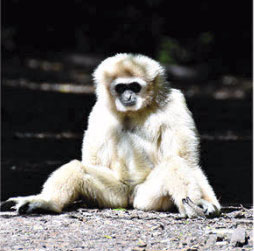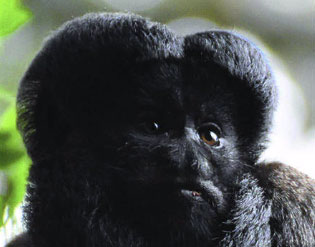I was diagnosed with a schizoid personality disorder a number of years ago, and on top of that I’ve had long-standing problems with drugs. But over the years, it’s the depression that’s caused me the most problems.
I had jobs and bounced around the country but I was never really able to hold anything down or maintain any consistency. The only consistency was cannabis and amphetamines. I was basically a functioning drug addict.
I thought, I’ve still got 40 years left on this planet but I had no idea what I was going to do with that time
In 2015 I decided I needed to do something. I’d been in prison for a couple of years and when I came out I was sleeping rough or in hostels or sofa-surfing. I was at a bit of a loss really. I thought, I’ve still got 40 years left on this planet but I had no idea what I was going to do with that time. A friend began to help me look for a new direction. I knew it had to be something significant, something big.

So he found me a job in South Africa working as a photographer at a primate sanctuary. I’d taken photographs before but not for many, many years, back when I was in my teens and early 20s.
I’d always had some sort of camera. I used to go fishing with my cousin and you’d take a photo of yourself holding the fish before you release it. For me, the photography became as big a part as the fishing. I’d always had issues with the fishing itself. I knew there were aspects of it that I enjoyed but I felt guilty about what I was doing to the fish. I was always troubled by that. Is this cruel? Am I hurting this fish? Then I realised I always kept hold of the photos and it dawned on me that it was really the photography that kept me fishing.
My friend helped me get a second-hand camera and I set off for South Africa for three months. The primate sanctuary, Monkeyland, took monkeys and primates that had been used as photographer’s props or in testing laboratories, or kept as pets, and tried to rehabilitate them and turn them back into happy, functioning monkeys.













